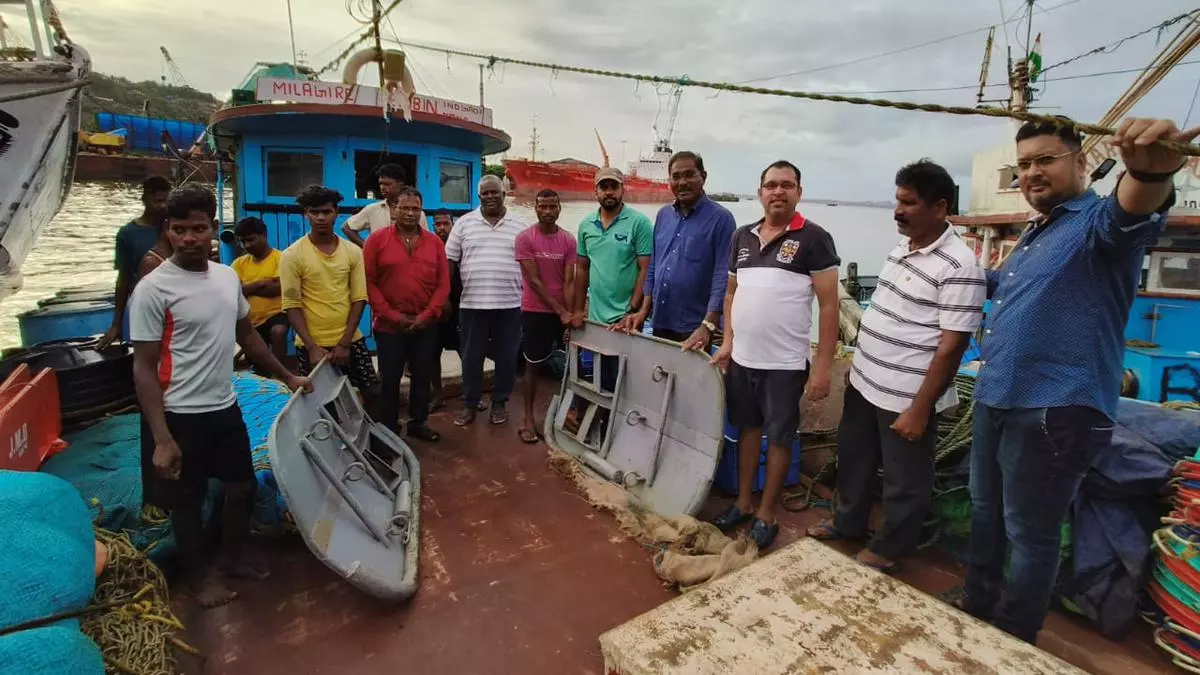Centre to promote CIFT’s double-slotted otter board to reduce diesel consumption in fishing sector
To improve fuel efficiency and overall sustainability in the trawling sector, the Center will promote the V-shaped Double Slotted Otter Board (VSOB) It was developed by the Central Institute of Fisheries Technology across the country.
The development of VSOB is a major advance in the trawling sector as the technology aims to reduce fuel consumption and CO2 emissions in trawling operations. Extensive trials revealed that about 2 to 3 liters of diesel could be saved per hour of trawling. This translates to a saving of around 15-20 liters per day, depending on various criteria.
Also read | CMFRI: Juvenile fishing continues to influence the marine fisheries sector in Kerala
VSOB adoption has the potential to make a significant impact on diesel savings. Even with a 50 percent adoption rate among fishing vessels, annual savings can amount to several million liters of diesel. Not only will this result in cost savings in the trawling industry, but it will also have environmental benefits by reducing fuel consumption and CO2 emissions.
In general, trawling is the most energy-intensive fishing method, and a significant contributor to global greenhouse gas emissions. fishing industry. The combustion of fossil fuels, particularly diesel, in fishing vessels is a major source of carbon dioxide emissions, and a major contributor to climate change. Diesel alone contributes a large share of the operating costs of large trawlers.
To popularize VSOB on the Indian Coast, the project named “Development and Deployment of Fuel Efficient Long Lasting Otter Boards for Greening India’s Trawling Sector” has been initiated.
Also read | CIFT, partner of the Port of Mumbai to clean up the Sassoon fishing dock
The ₹ 1.09 crore project has been financed by the National Fisheries Development Board headed by Pradhan Mantri Matsya Sampada Yojana, George Nenan, Director of CIFT.
The initially selected owners/stakeholders for the trawls will be drawn from all maritime states. VSOB operation will be demonstrated on board commercial vessels at all of these venues to impress with performance and fuel economy.
An important factor contributing to the high fuel consumption of fishing vessels is the trawling or resistance trawling system. Drag occurs when trawlers tow fishing nets through the water, and it requires significant engine power to overcome this resistance and maintain the required towing speed. Otter boards with holes are known for lower drag and lower fuel consumption.
